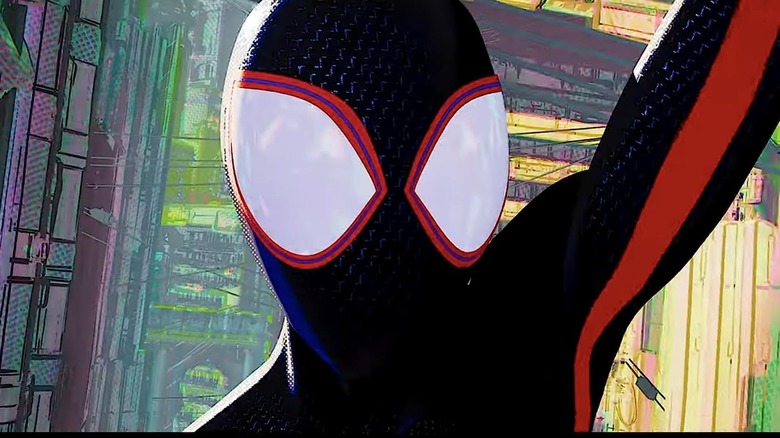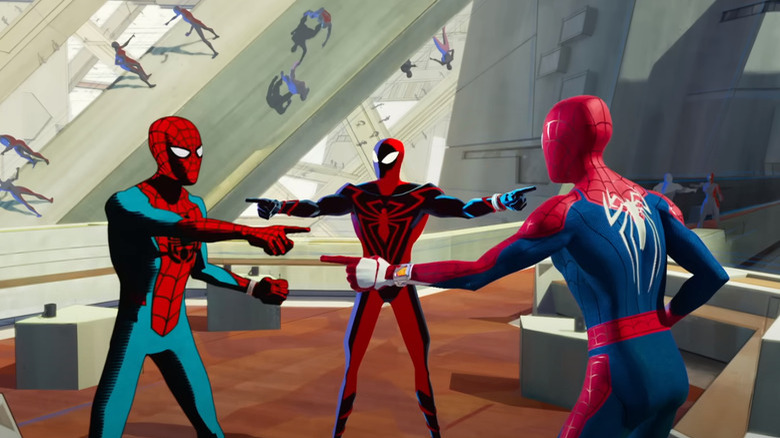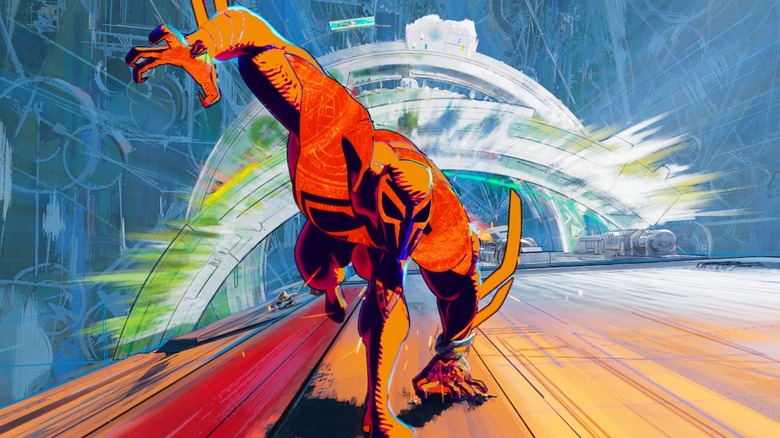Third Spider-Verse Movie Reportedly Won't Make Release Date As Animators Battle Overwork, Stress
Despite being one of the oldest forms of filmmaking, animation has always been under-appreciated. It's frequently treated as being inferior to live-action or just for kids, with animation writers earning significantly less than their live-action counterparts. Around the world, animators — you know, the people who make inanimate objects move, i.e. the very definition of animation — are severely underpaid and overworked. This, sadly, isn't exactly breaking news. The anime industry has suffered from this problem for so long that it's practically now a trope to include jokes about overworked animators in anime series (an issue the recent global demand for anime has only further exacerbated).
The West is not an exception, mind you. A new report from Vulture features interviews with four members of the crew of "Spider-Man: Across the Spider-Verse" (itself a monumental financial success and a huge creative achievement for the medium), who spoke about the arduous and relentless working conditions that led to the film's existence. Particularly troubling are the claims that producer and co-writer Phil Lord's management style led to several alterations to already-approved animated sequences very late in production. This, on top of the film's animators being forced to work "more than 11 hours a day, seven days a week, for more than a year," resulted in approximately 100 artists quitting production before the film was done.
One of the animators who spoke anonymously with Vulture cast doubts on the 2024 release date scheduled for the next "Spider-Verse" film, "Beyond the Spider-Verse." In their own words:
"There's no way that movie's coming out then. The only progress that's been made on the third one is any exploration or tests that were done before the movie was split into two parts."
Not unusual, sadly
/Film reached out to Sony for comment, but they declined to add to the news. Speaking to Vulture, Michelle Grady, the executive vice-president and general manager of Sony Pictures Imageworks, refused to put the blame on Phil Lord reworking the film. "It really does happen on every film," said Grady, commenting on the film's heavy revisions and reworking. "Truly, honestly, it can be a little bit frustrating, but we always try to explain that this is the process."
"Welcome to making a movie," added Amy Pascal, the former Sony Pictures Entertainment chairperson who produced both "Spider-Verse" movies.
Now, there is some truth to Grady's comments, even if that last bit was quite tactless. In the Vulture article, one of the anonymous animators stated, "For animated movies, the majority of the trial-and-error process happens during writing and storyboarding. Not with fully completed animation." This is simply untrue. It may not be the norm, but it does happen, a lot. Just take "Toy Story 2," a movie that was almost completely rewritten midway through production and led to grueling working conditions. Then there's "The Emperor's New Groove," a fun Disney animated film that's the result of so many rewrites and so much revisiting there's an entire documentary literally called "The Sweatbox" that explores just how dramatically the movie changed over the course of its development.
The industry deserves better
This isn't to take away from the poor working conditions animators faced on "Across the Spider-Verse," much less diminish their frustrations over late-stage rewrites and changes. It's well-known that Phil Lord and Chris Miller rely a lot on improvisation while making their projects, which is simultaneously easier to do in animation than live-action, but also leads to a lot of extra work.
As the animators told Vulture, the unexpected changes meant pushing back work to the very last minute, resulting in a production crunch and even a lack of ownership from certain artists. To quote one of the animators directly, "When you do a shot and it gets revised, if someone else polishes it, you don't feel comfortable calling it your own."
Phil Lord and the team behind "Across the Spider-Verse" aren't alone in having sudden changes result in overworked animators having to deal with grueling working conditions. But again, that is not an excuse. The animation industry, worldwide, has delivered some of the greatest works of art we've ever gotten, but it has also ruined lives and is near-impossible to sustain when workers are put through the wringer on a daily basis. Just as the Writers Guild of America has gone on strike to fight for better working conditions, and just as the Screen Actors Guild may join them, animators deserves better. This entire industry deserves better.


